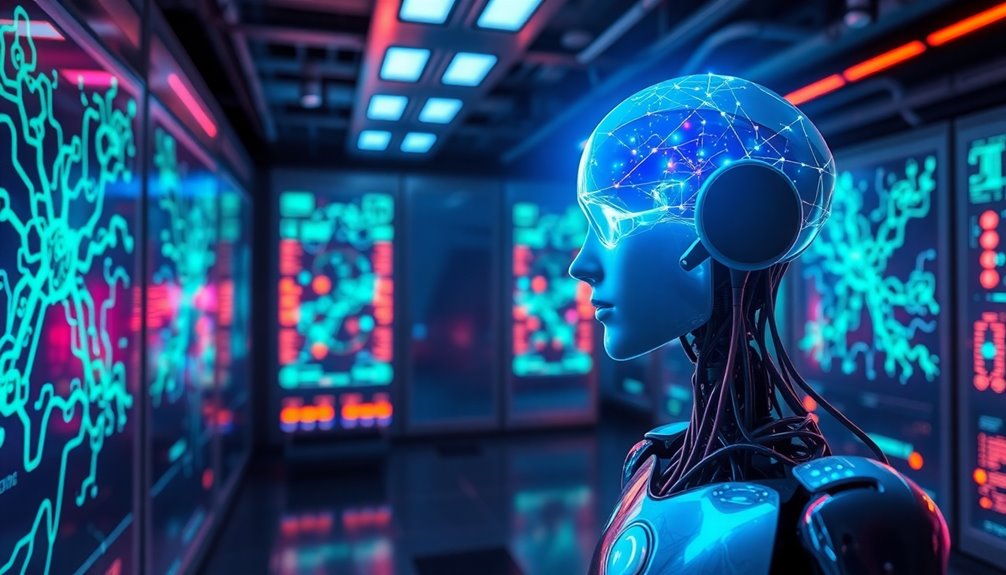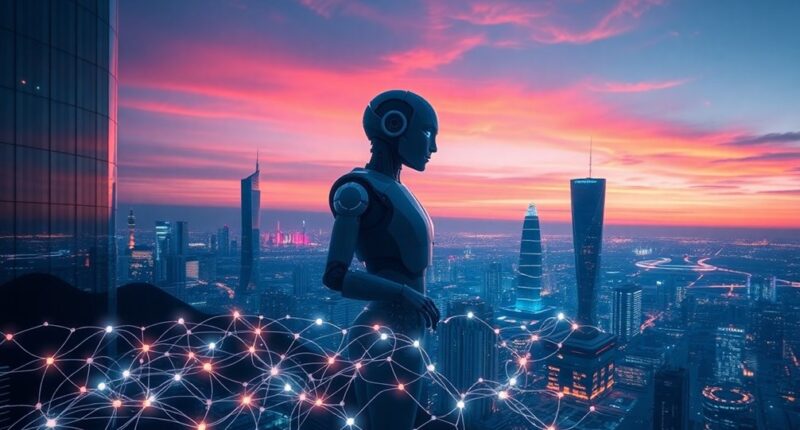As we stand on the brink of a new era in artificial intelligence, you might wonder what lies beyond AGI. The concept of Artificial Superintelligence (ASI) is emerging, promising capabilities far beyond human cognition. This shift could revolutionize how we tackle global challenges and innovate in science. However, with great power comes significant responsibility. What ethical dilemmas and risks should we consider as we move forward? The answers could reshape our future.

As AI technology continues to evolve rapidly, you might wonder what the next phase holds for this transformative field. Today, machine learning stands at the forefront, driving advancements in data analysis and decision-making. With neural networks and deep learning mimicking human brain functions, AI systems are increasingly capable of tackling complex tasks. This integration of robotics with AI is reshaping industries like manufacturing and healthcare, making processes more efficient and effective.
However, as you delve deeper into AI's evolution, you'll realize that ethical considerations are paramount. Issues like value alignment and control problems are critical discussions in the AI community, influencing how these technologies develop.
Looking ahead, the concept of Artificial General Intelligence (AGI) captures the imagination of many. AGI aims to surpass human intelligence across all domains, though experts disagree on when this will happen. The idea of reasoning machines—systems equipped with a "theory of mind"—is also gaining traction. These machines could reason and negotiate, fundamentally altering how we interact with technology.
Then there's the prospect of Artificial Superintelligence (ASI), a level of AI that could solve global challenges and innovate new sciences. While the timeline for achieving AGI and ASI is uncertain, breakthroughs in neuroscience and consciousness will be essential for these advancements. Machine learning is already a leading area of AI development, showcasing the potential for rapid progress in this field.
In terms of societal impact, AI is set to enhance productivity across various sectors, transforming work processes and leading to more personalized services. Think about how AI can tailor product designs and service delivery to meet your specific needs. Autonomous systems, like self-driving cars and robots, will become part of everyday life, changing how you commute and interact with technology.
Moreover, the integration of AI in government and legal systems promises improved efficiency and decision-making, shaping public services for the better.
However, as AI evolves through these phases, managing risks becomes crucial. Value alignment and control issues must be addressed to ensure safe development. The notion of a technological singularity—where AI may abruptly exceed human intelligence—remains speculative, but it's a reminder of the importance of a multidisciplinary approach to tackle AI's ethical and societal implications.
Ultimately, the future of AI could lead to unprecedented prosperity or significant risks, depending on how you choose to develop and govern these powerful technologies. Your role in this journey is vital, as you navigate the challenges and opportunities that lie ahead.









